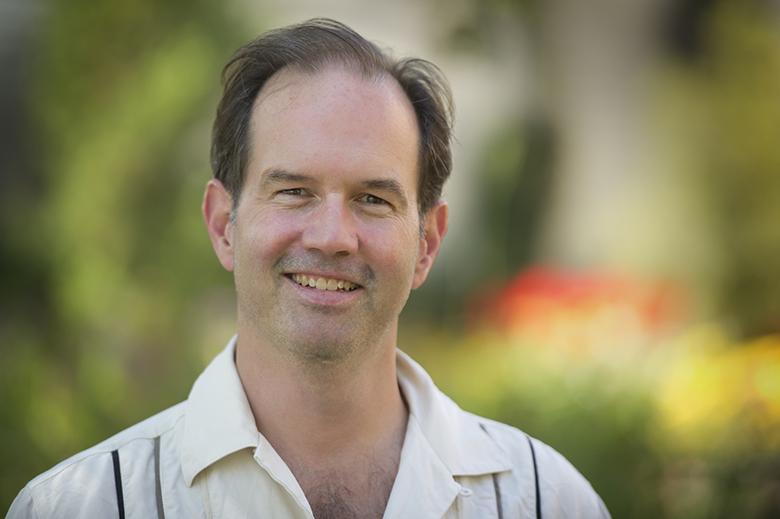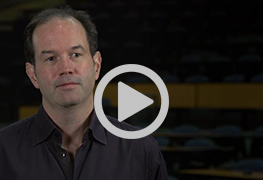Neil Rooney

Find Related People by Keyword
I’m originally from just outside of Lucan, Ontario where I grew up on a small farm wandering through the forests and playing in the streams. I believe that this upbringing underpins my fascination with the complexity and dynamics of ecological systems. Through my academic education, I was fortunate to work with scientists that carried out experimental, observational and theoretical studies and my research program employs all of these approaches in addressing ecological questions. My laboratory is particularly interested in research at the interface of ecosystem ecology (e.g. biogeochemical cycling and ecosystem metabolism) and biodiversity science (e.g. food web structure, species distributions). The overarching goal of our research program is to use these constructs to identify the structures and processes that confer stability to ecosystems in the face of human perturbations.
Meet Prof. Neil Rooney
Check out Neil's 60 second snapshot video here.
Academic History
McGill University. Ph.D. in Biology (2002)
Scale of analysis and the influence of submerged macrophytes on lake processes
University of Western Ontario M.Sc. in Environmental Science (1995)
Phytoplankton community change in an experimentally acidified lake
University of Western Ontario B.Sc. in Ecology & Evolution (1993)
Cyanobacterial blooms: which factors might advance or deter them?
Research Impact
Our research has been published in high impact international journals (e.g. Nature, Trends in Ecology and Evolution, Frontiers in Ecology and the Environment), garnering over 2000 citations. Work from our research group has also been featured on the BBC (Horizon) and by the CBC and MSNBC.
Current Research Projects
1. Quantifying cumulative effects of multiple stressors on the structure and functioning of aquatic food webs (Lake Huron and Georgian Bay).
2. Assessing the effects of aquaculture on nutrient cycling and food web structure of adjacent ecosystems in Lake Huron, with particular focus on native top predators.
3. Assessing the efficacy of agriculture best management practices and marginal land us on stream ecosystem structure and function in the Great Lakes basin.
Graduate Student Information
My approach to graduate student supervision is to foster independence with an emphasis on problem-solving. Within graduate school, students must acquire a firm grasp of core subject material, familiarize themselves with current trends and debates within the field, and equip themselves with a suite of tools which they can not only use within the confines of their degree program, but take into the world after they graduate. Although many of these goals can be addressed with class work, it is my experience that a well thought out thesis will more effectively prepare students for a successful future.
Our research group has weekly meetings so that graduate students can share their progress, struggles and triumphs. I also try to have frequent one on one meetings with my graduate students, and my door is always open.
Featured Publications
- McMeans, B.C., Kadoya, T., Pool, T.K., Holtgrieve, G.W., Lek, S., Kong, H., et al. (2019). Consumer trophic positions respond variably to seasonally fluctuating environments. Ecology, 100, 1–10.
- Bieg, C., McCann, K.S., McMeans, B.C., Rooney, N., Holtgrieve, N., Lek, S., et al. (2018). Linking humans to food webs: A framework for the classification of global fisheries. Front. Ecol. Environ., 16 (7), 412-420.
- Johnson, L, McCann, K, McMeans, B, Gutgessel, M, Moccia, R, Rooney, N. (2018). Evidence for asymmetric assimilation of an anthropogenic resource subsidy in a freshwater food web. Food Webs:e00084
- Bahadur Kc, K., Dias, G.M., Veeramani, A., Swanton, C.J., Fraser, D., Steinke, D., Rooney, N. et al. (2018). When too much isn’t enough: Does current food production meet global nutritional needs? PLoS One, 13, 1–16.
- Pool, T., Holtgrieve, G., Elliott, V., McCann, K., McMeans, B., Rooney, N., et al. (2017). Seasonal increases in fish trophic niche plasticity within a flood-pulse river ecosystem (Tonle Sap Lake, Cambodia). Ecosphere, 8.
- McMeans, B.C., McCann, K.S., Humphries, M., Rooney, N. & Fisk, A.T. (2015). Food Web Structure in Temporally-Forced Ecosystems. Trends Ecol. Evol., 30, 662–672.
- McMeans, B.C., McCann, K.S., Tunney, T.D., Fisk, A.T., Muir, A.M., Lester, N., Rooney, N. (2016). The adaptive capacity of lake food webs: from individuals to ecosystems. Ecol. Monogr., 86, 4–19.
- Rooney, N. & McCann, K.S. (2012). Integrating food web diversity, structure and stability. Trends Ecol. Evol., 27, 40–46.
